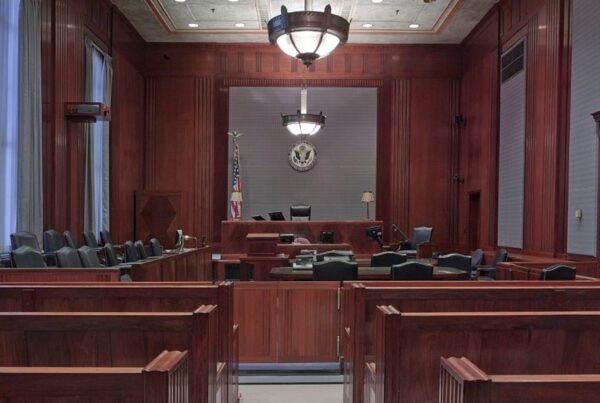 Mediation, mandated by a judge in every lawsuit, involves parties convening with a mutually selected impartial neutral person. This mediator aids in negotiating their differences, aiming to sidestep the uncertainties of trial. While virtual mediation gained traction amid the Covid-19 pandemic, it is much more than a mere emergency pandemic procedure.
Mediation, mandated by a judge in every lawsuit, involves parties convening with a mutually selected impartial neutral person. This mediator aids in negotiating their differences, aiming to sidestep the uncertainties of trial. While virtual mediation gained traction amid the Covid-19 pandemic, it is much more than a mere emergency pandemic procedure.
Effective October 1, 2022, the Florida Rule of Civil Procedure 1.700 underwent an amendment to offer relief specifically within the realm of mediations. See In re Amendments To Florida Rules of Civil Procedure, Florida Rules of Gen. Practice & Judicial Admin., Florida Rules of Criminal Procedure, Florida Prob. Rules, Florida Rules of Traffic Court, Florida Small Claims Rules, & Florida Rules of Appellate Procedure 346 So. 3d 1105, 1109 (Fla. 2022) (“the use of communication technology is authorized in mediation and arbitration by stipulation of the parties or by court order”).
As currently written, Rule 1.700 provides that, “[an] order or referral or written stipulation may provide for mediation or arbitration to be conducted in person, through the use of communication technology . . . or by a combination thereof. Absent direction in the order of referral, mediation or arbitration must be conducted in person, unless the parties stipulate or the court, on its own motion or on motion by a party, otherwise orders that the proceeding be conducted by communication technology or by a combination of communication technology and in-person participation.” Fla. R. Civ. P. 1.700(a).
The District Courts of Appeal in Florida has held that when a party cannot physically appear in a civil matter, “the trial court normally should grant a request to hold necessary hearings by telephone, pursuant to the procedure outlined in Florida Rule of Judicial Administration [2.530].” Johnson v. Johnson, 992 So. 2d 399, 401 (Fla. 1st DCA 2008).
Courts have also granted parties the option of remote appearance in cases where the alternative would prove burdensome for either the party or its legal counsel. See, e.g., Miller v. Miller, 37 So. 3d 281, 283 (Fla. 2d DCA 2010) (holding trial court abused its discretion in denying party’s request to appear telephonically when appearing in person would be difficult); Dep’t of High. Saf. & Motor Vehs. v. Edenfield, 58 So. 3d 904, 907 (Fla. 1st DCA 2011) (telephonic appearance by witness permissible).
Moreover, another party’s objection to a motion for remote appearance is not sufficient to justify denial of said motion. See Edgar v. Firuta, 165 So. 3d 758, 761 (Fla. 3d DCA 2015). Recently, the Florida Supreme Court reasserted its recognition of the utility of communication technology, or remote proceedings. See In re Amendments To Fla. Rule of Civil Proc., 346 So. 3d 1105 (Fla. 2022) (“[t]he substantially rewritten rule 2.530 defines communication technology and allows a court official to authorize its use upon a party’s written motion or at the discretion of the court official”).
The use of communications technologies is preferred because it increases efficiency and decreases burden, annoyance, and expense. See id. 165 So. 3d at 1107 (“broader authorization for remote proceedings [is] warranted based on the positive outcomes and efficiencies observed during the pandemic.”).
As mediations are non-evidentiary in nature, Courts consider Rule 2.530(b)(1), which provides that, “a court official must grant a motion to use communication technology for a non-evidentiary proceeding scheduled for 30 minutes or less unless the court official determines that good cause exists to deny the motion.” Fla. R. Jud. Admin. 2.530(b)(1) (emphasis added).
Among the factors to be considered in determining good cause are, “the technological capabilities of the courtroom . . . the nature of the relief sought and the amount in controversy in the case, the resources of the parties . . . the geographic location of the witness, the cost and inconvenience in requiring the physical presence of the witnesses [. . .].” Id.
For more information on mediations or civil actions, contact one of our experienced litigation attorneys at 305-570-2208. You can also email our lead attorney Eduardo directly at eduardo@ayalalawpa.com.
We at Ayala Law PA are passionate about helping those in legal need, so please don’t hesitate to schedule a case evaluation with us online here.
Subscribe to Our Blog
Stay informed with our latest blog posts delivered directly to your inbox. Gain valuable legal insights, tips, and advice from our seasoned attorneys.






